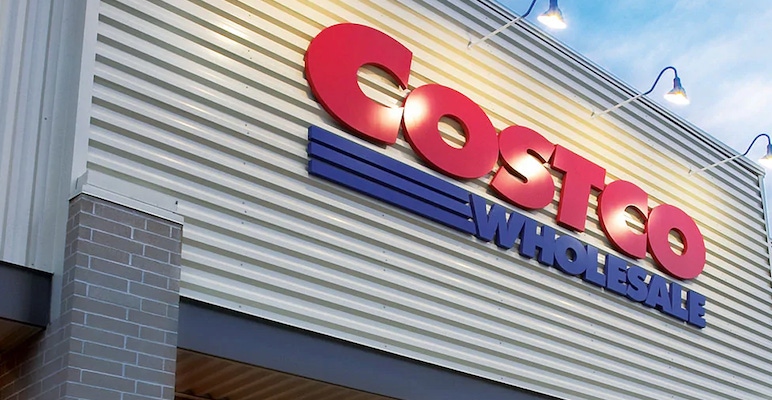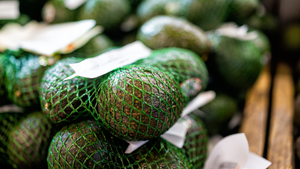Costco posts double-digit sales gains for MarchCostco posts double-digit sales gains for March
Stock-up purchases due to COVID-19 boost comps, traffic, basket size
April 9, 2020

Driven by consumer stockpiling in response to the coronavirus pandemic, net sales and U.S. comparable sales at Costco Wholesale climbed by double digits for the March sales period.
Total net sales jumped 11.7% to $15.49 billion for the five weeks ended April 5, compared with $13.87 billion a year earlier, Costco said yesterday.
Overall comp-store sales for March rose 9.6% year over year, reflecting gains of 10.7% in the United States, 1.2% in Canada and 12.2% internationally. E-commerce surged 48.3% on a comparable basis.
Excluding the impact of fuel and foreign exchange for the five weeks, comps soared 12.3% overall, including growth of 12.1% in the U.S., 7.2% in Canada and 19.2% internationally. Comparable e-commerce sales swelled by 49.8%.
“Our comp traffic, or frequency, for March was up 3.7% worldwide and 5.3% in the U.S. The average transaction was up 5.7% for the month, which includes the impacts from foreign exchange and gas deflation,” David Sherwood, assistant vice president of finance and investor relations at Costco, told analysts in a conference call late Wednesday.
The March results continued Costco’s strong sales momentum triggered by the coronavirus outbreak in February, when shoppers began rushing to food, drug and mass retailers to build up supplies for extended stays at home to slow the spread of coronavirus. For the four weeks ended March 1, covering the February sales period, Costco totaled net sales of $12.20 billion, up 13.8%. Adjusted for fuel and foreign exchange, comp sales rose 11.7% companywide and 11.6% in the U.S., 10.4% in Canada and 13.5% internationally for February, with 22.7% e-commerce growth.
“March sales were significantly impacted by the COVID-19 pandemic. The initial response to the pandemic led to significant sales and traffic increases in our warehouses, as we disclosed last month concerning sales in the last week of February. Those increases extended midway through the March reporting period,” Sherwood explained.
“Around that time, and part in response to government actions, we began implementing operational changes. One example is limiting the number of individuals allowed in our warehouses at any given time, depending on local requirements,” he added. “In addition, we have changed warehouse hours; temporarily closed some segments of our business such as optical, hearing aid and mini-lab; limited service at food courts; and in some locations ceased sales of certain merchandise deemed nonessential by regulators. These developments slowed sales as compared to the first half of March.”
Unsurprisingly, consumables and health/personal care categories saw the strongest comp-sales growth in March, excluding foreign exchange. Sherwood reported that food and sundries rose by percentages in the mid-30s.
“Departments with the strongest results were food, frozen food and sundries. Fresh foods were up mid-20s. Better-performing departments included meat and produce,” he said in the call. Hardlines were down by low single digits and softlines saw declines in the mid-20s as consumers focused on purchases of essential items.
For the fiscal year to date, spanning 31 weeks, net sales came in at $96.25 billion, up 9% from $88.29 billion in the prior-year period. Total comparable sales rose 7.5% (7.8% excluding fuel and foreign exchange), with U.S. comps up 8% (7.9% excluding fuel and foreign exchange). E-commerce sales in the period were up 22.2% on a comparable basis.
Issaquah, Wash.-based Costco operates 787 warehouse clubs overall, including 547 in the United States and Puerto Rico, 100 in Canada, 39 in Mexico, 29 in the United Kingdom, 26 in Japan, 16 in Korea, 13 in Taiwan, 12 in Australia, two in Spain, and one apiece in Iceland, France and China. Costco also has e-commerce sites in the U.S., Canada, the U.K., Mexico, Korea, Taiwan, Japan and Australia.
For our most up-to-date coverage, visit the coronavirus homepage.
About the Author
You May Also Like






